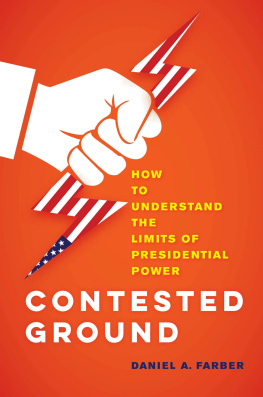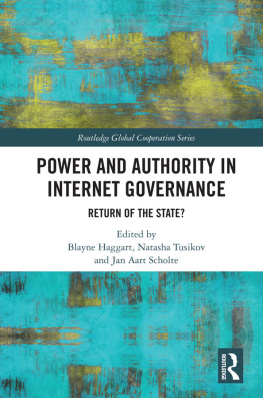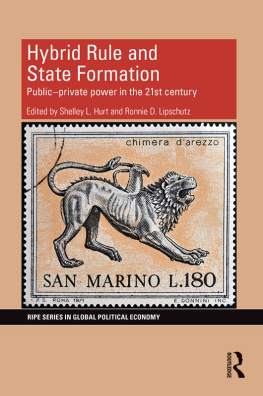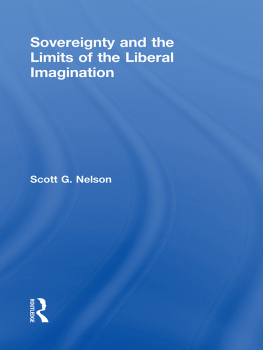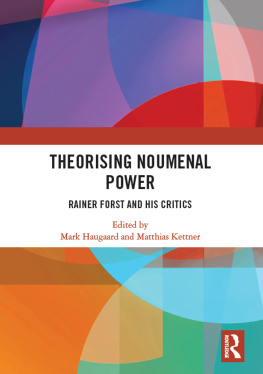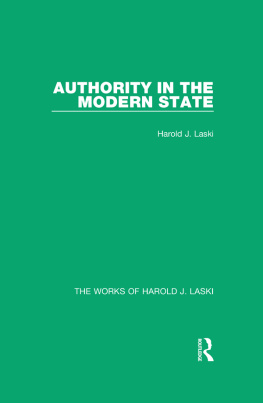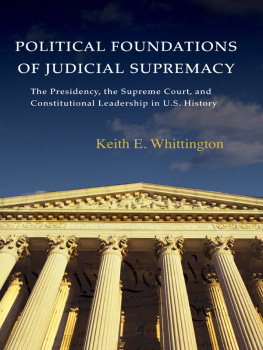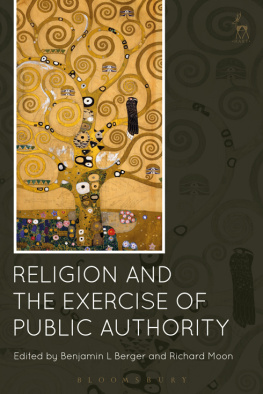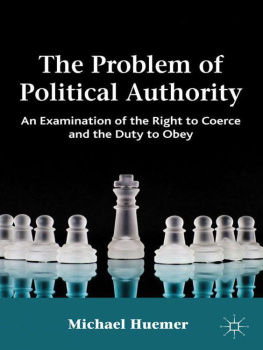OXFORD CONSTITUTIONAL THEORY
Series Editors
Martin Loughlin, John P McCormick, and Neil Walker
Sovereigntys Promise
OXFORD CONSTITUTIONAL THEORY
Series Editors:
Martin Loughlin, John P. McCormick, and Neil Walker
One consequence of the increase in interest in constitutions and constitutional law in recent years is a growing innovative literature in constitutional theory. The aim of Oxford Constitutional Theory is to provide a showcase for the best of these theoretical reflections and a forum for further innovation in the field.
The new series will seek to establish itself as the primary point of reference for scholarly work in the subject by commissioning different types of study. The majority of the works published in the series will be monographs that advance new understandings of the subject. Well-conceived edited collections that bring a variety of perspectives and disciplinary approaches to bear on specific themes in constitutional thought will also be included. Further, in recognition of the fact that there is a great deal of pioneering literature originally written in languages other than English and with regard to non-anglophone constitutional traditions, the series will also seek to publish English translations of leading monographs in constitutional theory.
Sovereigntys Promise
The State as Fiduciary
Evan Fox-Decent
McGill University


Great Clarendon Street, Oxford OX2 6DP
Oxford University Press is a department of the University of Oxford.
It furthers the Universitys objective of excellence in research, scholarship,
and education by publishing worldwide in
Oxford New York
Auckland Cape Town Dar es Salaam Hong Kong Karachi
Kuala Lumpur Madrid Melbourne Mexico City Nairobi
New Delhi Shanghai Taipei Toronto
With offices in
Argentina Austria Brazil Chile Czech Republic France Greece
Guatemala Hungary Italy Japan Poland Portugal Singapore
South Korea Switzerland Thailand Turkey Ukraine Vietnam
Oxford is a registered trade mark of Oxford University Press
in the UK and in certain other countries
Published in the United States
by Oxford University Press Inc., New York
E. Fox-Decent, 2011
The moral rights of the author have been asserted
Database right Oxford University Press (maker)
Crown copyright material is reproduced under Class Licence
Number C01P0000148 with the permission of OPSI
and the Queens Printer for Scotland
First published 2011
All rights reserved. No part of this publication may be reproduced,
stored in a retrieval system, or transmitted, in any form or by any means,
without the prior permission in writing of Oxford University Press,
or as expressly permitted by law, or under terms agreed with the appropriate
reprographics rights organization. Enquiries concerning reproduction
outside the scope of the above should be sent to the Rights Department,
Oxford University Press, at the address above
You must not circulate this book in any other binding or cover
and you must impose the same condition on any acquirer
British Library Cataloguing in Publication Data
Data available
Library of Congress Cataloging in Publication Data
Library of Congress Control Number: 2011939971
Typeset by SPI Publisher Services, Pondicherry, India
Printed in Great Britain
on acid-free paper by
CPI Group (UK) Ltd, Croydon, CR0 4YY
ISBN 9780199698318
1 3 5 7 9 10 8 6 4 2
for my parents Wally and Joan Fox-Decent
Acknowledgements
This book began as a PhD dissertation written at the University of Toronto while I was in its joint JD/PhD (philosophy) programme. Special and heartfelt thanks go to my supervisor, David Dyzenhaus. Even while on sabbatical in New Zealand, he remained in touch and encouraged me to persevere and deal with the thickets of detail that frequently obscured the idea. He read countless drafts of earlier versions of most of the chapters produced here, providing insightful and constructive suggestions within days (sometimes within the same day) of having received the latest bit. A student could not have a more dedicated and capable supervisor. What is more, although the thesis was defended in 2003, he has since offered equally generous comments on sections of the book that have been updated to take account of more recent developments in administrative law.
I am also very grateful for the assistance I received from the readers on my committee, Arthur Ripstein and Lorne Sossin. Their comments were invaluable, and always forthcoming, especially in the final days leading up to submission, when I made numerous unreasonable calls on their time to review successive drafts and discuss ideas. They, too, have since given me generous comments on subsequent work towards this book.
I owe a similar debt to several colleagues at McGill Universitys Faculty of Law: Helge Dedek, Richard Janda, Robert Leckey, Rod Macdonald, Frderic Mgrt, Victor Muiz-Fratecelli, Lionel Smith, and Steve Smith. I would also like to thank many others for encouragement, discussion, and comments, including, Daniel Brudney, Evan Criddle, Wally Fox-Decent, Dennis Klimchuk, Matthias Mahlmann, Margaret Martin, Colleen Murphy, Sean Rehaag, Robert Shaver, Kaveh Shojania, Malcolm Thorburn, Mark Walters, and Raquel Yrigoyen Fajardo.
Various portions of the book were presented and discussed at a number of conferences: the Lon Fuller and Contemporary Legal Controversies two-part conference held at the law faculties of McGill University and the University of Toronto (2005); the Young Scholars Conference held at the Faculty of Law of McGill University (2008); the Dunsmuir Roundtable held at the Faculty of Law of the University of Toronto (2008); and a 2008 session of the McGill Political Theory Workshop. My thanks go to the organizers and participants.
Special thanks are also due to a teacher, Johnston Smith, from St Pauls High School in Winnipeg. While he did not did participate directly in this project, he sparked my interest in political philosophy, leading me to adopt a sceptical view of state authority.
I also owe a debt to several students who provided research assistance above and beyond the call of duty: Paul Clark, Matt Finn, Anthony Guindon, Carlos Ivn Fuentes, and Nelcy Lpez Cullar.
Two former students, Stefan Szpadja and Robert Whillans, merit thanks for reading through the manuscript cover-to-cover during the final revisions stage and providing innumerable helpful comments in every chapter. Robert, in fact, did this twice over, under unreasonable time constraints, and also took on the laborious task of converting the notes to a modern, uniform style.
This book would not have been possible but for the support of the Faculty of Law and the Department of Philosophy of University of Toronto while I was completing a JD and later writing my doctoral thesis. In addition to my committee, Brian Langille in Law and Joyce Wright in Philosophy were especially supportive. McGills Faculty of Law has since become my academic home. It has been an especially fertile and collegial setting for interdisciplinary research, in large part due to the leadership of its former Dean (now Justice) Nicholas Kasirer and its present Dean Daniel Jutras. Also, I would like to thank the Social Science and Humanities Research Council of Canada for financial support throughout my doctoral and post-doctoral studies, as well as during the latter stages of the project.
Next page

